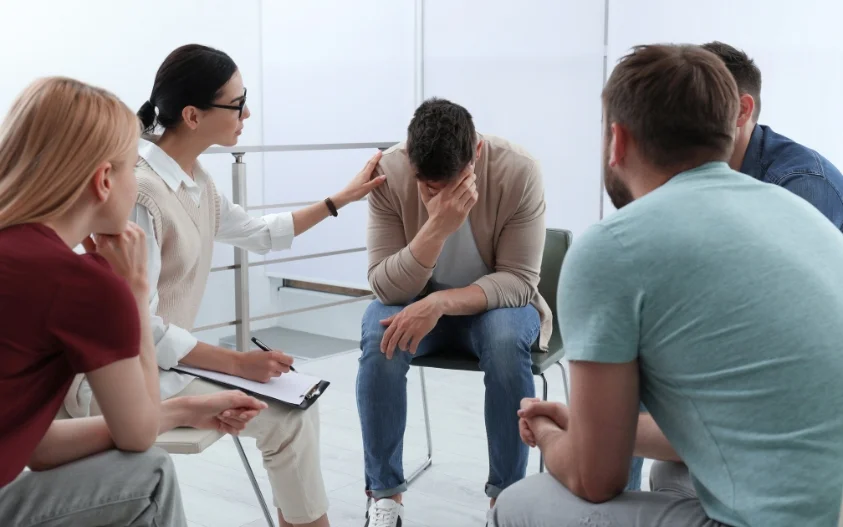24/7 Helpline:
(866) 899-221924/7 Helpline:
(866) 899-2219
Learn more about Bipolar Disorder Treatment centers in Hardin
Bipolar Disorder Treatment in Other Cities

Other Insurance Options

Meritain

Optum

EmblemHealth

Health Choice

Health Net

Evernorth

MHNNet Behavioral Health

Amerigroup

Excellus

Health Partners

Sutter

Optima

Humana

Holman Group

AllWell

GEHA

Aetna

Horizon Healthcare Service

Self-pay options

Kaiser Permanente

























